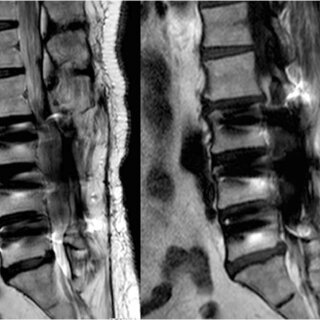Spine tumors present unique challenges, requiring select expertise. Surgeons approach these cases with careful planning, technical precision, and a commitment to patient support. If you or a loved one faces treatment for a complex spine tumor, here are some of the methods neurological surgeons use that may help you recover faster:
Spine Tumor Surgery
A spine tumor refers to any abnormal growth within the spinal region. These growths may develop inside the spinal cord, within the membranes that surround it, or in the vertebrae. The symptoms often include back pain, weakness, numbness, or changes in bowel and bladder habits.
Surgery for spine tumors often focuses on removing as much of the tumor as safely possible while maintaining or restoring spinal stability and neurological function. Decisions about surgical techniques depend on the tumor’s size, location, and impact on surrounding nerves and bones.
Spinal Fusion
Spinal fusion brings together two or more vertebrae to support the spine after tumor removal. By joining these bones, surgeons protect against spinal instability that might arise when parts of the vertebral column are removed. The fusion often involves placing bone grafts and securing them with metal rods, screws, or plates. Recovery from spinal fusion may involve physical therapy and a gradual return to regular activities.
Microsurgery
Microsurgery uses magnification and small surgical instruments, which allows neurological surgeons to remove tumors with minimal impact on healthy tissue, precisely. Smaller incisions and detailed visualization offer advantages. Patients may experience less pain, a lower risk of infection, and a quicker recovery compared to traditional open surgery. Many patients are surprised at how targeted microsurgery feels, offering hope for a quicker return to daily routines.
Decompression
Spine tumors sometimes press on nerves or the spinal cord, resulting in pain and neurological symptoms. Decompression surgery creates more space for these structures. By removing part of the bone or the tumor itself, the pressure is relieved. Decompression aims to improve function and reduce symptoms like numbness, weakness, or loss of coordination. This procedure is often combined with stabilization techniques to maintain spinal alignment and ensure structural support after decompression. It is a highly individualized approach, tailored to the specific needs and condition of the patient.
Supportive Care
A diagnosis of a spine tumor is overwhelming. Surgeons, nurses, physical therapists, and other specialists work as a team to guide patients and their families from the first consultation through recovery. Support extends beyond the operating room. Pain management, physical therapy, and emotional support contribute to a smoother path to healing.
If you have questions or concerns about spine tumor surgery, reaching out to a care team early helps you make sense of your options and feel more prepared for what’s ahead. Every patient’s situation is unique, and tailored guidance makes a difference.
Find Neurological Surgeons Near You
Ask your surgical team to explain each recommended procedure, including benefits and possible risks. Consider bringing written questions to appointments to keep track of information. Seek out support groups or counseling, as many find comfort in connecting with others experiencing similar challenges. Stay engaged in every stage of care, including recovery and follow-up, to optimize outcomes. Schedule an appointment with a practice near you for spine surgery.





Leave a Reply